PHOTO: The Chosunilbo JNS / Contributor
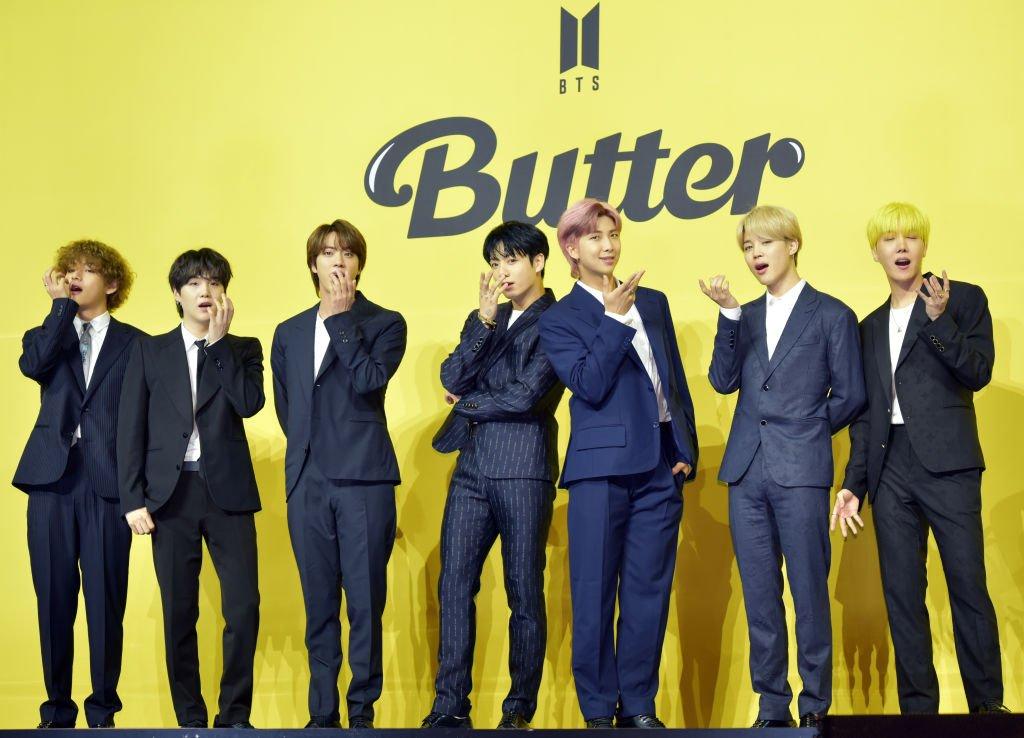
interview
Smooth Like "Butter": How BTS' GRAMMY-Nominated Mega Hit Came To Be
"Butter" — the second English-language single from K-pop group BTS — is nominated for Best Pop/Duo/Performance at the 64th GRAMMY Awards. Co-writer Rob Grimaldi discusses creating the record-breaking hit for one of the world's biggest bands.
What does it take to create a hit song? Musicians, songwriters and producers have attempted to answer this question since the inception of the music industry and the beginning of the pop star.
While some songwriters and producers feel hit records can be created through a precise science or formulaic approach, others claim that hit records are created based on feeling. Songwriter, producer and A&R Rob Grimaldi advocates for the latter, using BTS' "Butter" as his evidence.
"Butter" is the second English-language single from BTS, the smooth, groove-heavy South Korean boy band. After forming in 2010, BTS burst onto the American scene in 2017 with “DNA” — their first song to chart on the Billboard 100. In 2018, the seven-member group became the first Korean band to play a U.S. stadium and, three years later, BTS' "Butter" surpassed 800 million streams on Spotify and spent a record-breaking 10 weeks at No.1 on the Billboard Hot 100.
"Butter" highlights the charming, infectious swagger that has become synonymous with the Bangtan septet of Jungkook, Park Ji-min, J-Hope, Jin, RM, Suga and V. It also illustrates the stellar song crafting abilities of Jenna Andrews, Stephen Kirk, Alex Bilowitz, Sebastian Garcia, Ron Perry, RM and Rob Grimaldi, who developed "Butter" over a three-month period.
Grimaldi, a multi-instrumentalist from Bergen County, NJ, has a knack for mirroring the style of whatever artist he's working with at the moment. Using this gift, Grimaldi has helped create songs for and with stars such as BLACKPINK, Queen Naija, Jimmie, Tim McGraw, Noah Cyrus and JoJo. His BTS success is the result of years of attention to detail.
"Butter gave that feeling that we were trying to capture for BTS," Grimaldi told GRAMMY.com over Zoom. "It was nostalgic yet fresh; it incorporated what BTS has already done so well and took it to another level."
"Butter" is nominated for Best Pop/Duo/Performance at the 64th GRAMMY Awards. Grimaldi offers insight about creating this No. 1 hit, collaborating with a group of songwriters and producers, and what it was like working with one of the biggest groups in the world.
This interview has been edited for clarity.
When did you first get into producing/songwriting and what was your first chart-hitting single as a songwriter/producer?
Music has been a forever for me. I started playing piano before I could even read or write at about 3 years old. I also began playing drums around the same time, so I think music has always been something that I wanted to pursue. I did classical and jazz training in middle school from a writing perspective.
Around 12 or 13, I began diving deeper into pop music, and I knew I wanted to start writing. I remember my parents taking me to a studio to cut my first instrumental mini-album around this same time; that was my first look into creating and recording. The first charter that I had was Queen Naija's "Karma" — it was the first record I made with Queen…on Capitol Records, and it went No. 1.
And from that promising beginning, you eventually worked on BTS' "Butter." You, Jenna Andrews, Stephen Kirk, Alex Bilowitz, Sebastian Garcia and Ron Perry were involved with the songwriting, and you, Kirk and Perry alone handled the production. How did you all come together to create what would be known as "Butter?"
I think one of the most remarkable aspects of "Butter's" story is the team aspect. And I'm a big team player who believes the team dynamic in music is underrated. For "Butter" specifically, every member of this project had a unique skill set. And that created such a special moment in crafting this song because we were able to shine in our way, using our strengths to come together and build a hit record.
Everybody had a job to do, but we never forced it; we knew what we did well. The experience of being together for three months straight was fantastic personally, but you really get to know each other professionally. And at the end of those "Butter" sessions, we left with a better understanding of each other and what we were capable of when we truly pushed ourselves.
Did you all know each other before working on "Butter?"
We all had worked together and known each other separately, but we had never worked together on this level of intensity. People's relationships, both personal and professional, were established before, but you have to get after it when you're working on something like this.
Everyone did such an incredible job of realizing that we have to work together as a squad if we want to make the best piece of art. Collaboration isn't always easy, but it felt natural to get right to work in this case.
So, walk me through the "Butter" miracle [Laughs]: Could you describe how those studio sessions were? Why did it take three months? And just for clarification, the "Butter" sessions took place during the pandemic, correct?
Yes! And the fun part about it was that a lot of it was over Zoom — even if we were in the same place at times. Whether online or in-person, getting together became routine after a while. We would do our sessions throughout the day and fulfill our calendar, but after dinner, it almost felt like a daily thing of, Okay, it's time to work on 'Butter,' let's get everyone together.
Regarding the three months for the song's creation, the length of design and process depends on the project, and it varies constantly. If you and I were in the studio, some songs would be able to be finished in a day or maybe six to eight hours. At the same time, other songs take three months. "Butter" was a song where everyone was so passionate about getting it right.
Now, don't get me wrong [laughs], I don't believe there is anything on earth that is perfect. I think that is a word we throw around, but we were all so incredibly motivated and diligent to get this song as close to perfect as possible for BTS. It was extra important for us. We knew what was on the line, and we also knew how talented and fabulous BTS is. The strategy for a record like this took longer than others because we wanted every piece to work correctly. Whether it was working on the track, tweaking a lyric or being competitive through our sonics, these things led to an excellent record, and we took our time to make sure it was ready to go!
What a process! How many drafts of "Butter" did the squad create through this three-month session before you got to the performance that the world fell in love with?
Marc, I can't even tell you the number; I have the session and all of the prints saved on an external hard drive to put in a case somewhere and look at 10 years from now. But there were countless edits both to production and lyrics; we made changes when cutting the demo, cutting the master, and I think there were so many stages of this process that made it magical.
Looking back at this and saying, "This is where we started and look where we finished," is very rewarding, especially as a producer. I'm sure it's the same feeling as a songwriter, but watching that transformation is incredible. I have to tell you, the moment that we looked at the song from the beginning, we knew it was a hit. But it was in watching the art transform and take different forms was the most satisfying, I would say, about the three-month process. So many versions of the song exist, but I'm glad the one we loved is the one the world loves.
The Beatles have a litany of re-releases with different versions of their songs; maybe we get something like that for BTS' "Butter?" I would not be mad at that!
Hey, if you want to do it, I would be happy to help [Laughs].
I know that most producers/songwriters don't go into the studio to create a hit. But you mentioned that you knew this song was a hit from the beginning. Did you or any other songwriters/producers ever verbally say that this song was a hit during its creation?
I think it was immediate for me. As a producer, writer and A&R, you have that one folder on your computer of records that you genuinely believe in, and before this song became "Butter," this was one of those songs for me. It took one listen to understand it and know that there was something exceptional about it, and it's very rare to find those.
This is [an idea] that the squad and I have had discussions about. When you're writing five songs a week or however many, capturing that undeniable ability and feeling is rare. It makes you even more grateful when you feel that way about something. It pushes you and motivates you to make sure you finish it and get it in the right hands because this one was special.
This song was a feeling that you caught when you listened to it, but it had the formula to be great from a music perspective. The vibe of the song, the energy, that let me know we were on to something rare.
"Butter" is a celebration of pop music, as it includes various references to other mega pop stars and chart topping songs. For example, the Michael Jackson and Usher references in the first verse. Was the idea of paying homage an intentional part of "Butter's" song creation, or did that happen more organically?
I think it originally began organically, but the squad had those discussions as the song evolved. We thought about it like, okay, BTS is the most significant group globally, and they're coming off a pretty big hit already. So it wasn't about one-upping; it was about creating something that checked all the boxes.
The nostalgia and the feeling that merges a lot of our favorites before BTS was an important facet, at least to me, and I know Ron and Stephen on production felt the same about taking influence from records that we loved in the past.
Even more than influence, though, ["Butter" was informed by] a feeling [of] let's try and create something that makes you feel a certain way, but feels new and fresh. Lyrically, it's the same idea as an Usher song and an MJ song…but when you dive into it, it all points to the same place of outstanding classic records. And that's really what the goal was.
Do you know how BTS felt when they initially heard the song? You can't speak for them, obviously, but did you get a chance to listen to them speak their piece about "Butter?" And how did that drive you guys from that point forward?
Through the grapevine, I know they were excited when they heard it, but I don't have the specifics to tell you what was said and what wasn't. But I can tell you that the song needed to be immediate for them, which was the goal of lyric, melody and production. The song had great bones. If you just played the music on a piano, you would still be able to understand and sing it back constantly, and there was just a lot to work with.
So the process of working the song out and making the song what they heard was crucial because they needed something that sounded like a hit as soon as they heard it. So from the beginning to the end, every moment of the song had to give you that feeling. Any sign of weakness on that front, and we may not have gotten the reaction of Wow, this is it.
There is so much to think about when describing the "making of" in that way. What were some of the best strategies and skills you learned from the other songwriters/producers present for "Butter's" creation?
There was a bunch that I learned, and first and foremost, I want to thank the squad because everyone's antennas were up on this song. The attention to detail throughout this track's creation was incredible. When you share that passion with a group you're working with, everyone holds each other accountable and wants what's best for the song and the group. So it was meaningful to me to share that with the squad of producers/songwriters that I was a part of.
From an A&R perspective, so much was learned. But, of course, the first thing had to be knowing your talent. In this case, it was studying BTS and getting to know them as a whole. We had to figure out what they stand for and what they believe in, what they say, how they like their records to sound, and what we can do to bring out the best in each member of BTS. Talking about it is not something you discuss when working on a hit record, but in this case, it served us incredibly well. Having that knowledge of who we were writing for dictated the decision-making in the record.
With the number of details that went into this song, it is genuinely no wonder "Butter" has had the global reach and success it did. Recently, I saw on your Instagram story that "Butter" surpassed 800 million streams on Spotify. With that success still coming in, have any artists come to ask you to replicate the magic that went into BTS' hit song?
The industry is always aware of successful moments. We've seen this in the past with a million other things; when you're going to create for someone and the A&R, producer, songwriter generally says, "I would love a song that sounds like this." "Butter" has become that.
Yes, I have been asked by many people since — and I know the "Butter" squad has as well — not to recreate "Butter" but a hit that feels like that. As mentioned earlier, these are such rare moments in finding the one. Still, it is satisfying knowing that people are watching this and really appreciate the art, the group and want to find that success in themselves.
"Butter" has become a moment that other people are trying to replicate not only because of the commercial success of the song but the fact because the song has lived this long at the top. BTS will be BTS with or without us; they do that greatness regardless because they're great. But the song's longevity has been proof to me that this worked.
Have you or the squad contacted BTS since the release of Butter? If so, have you all flirted with the idea of getting the gang back together for another single?
There has been communication with all members of the squad and BTS. Obviously, there is a want to continue the work we did after having so much success with them. However, one of the biggest reasons for wanting to work with them again is how much they learned about them.
Now moving forward…we understand the formula that worked before, it's certainly not easy recreating that magic. Still, there is so much experience attached there that can move with a clear mind from the beginning. So yeah, lines of communication have definitely been open. Working on "Butter," we got a chance to live in their world creatively, and doing that with BTS was special.
When you saw that "Butter" had been nominated for a GRAMMY this year, how did that make you feel?
I was so excited for BTS. Obviously, there is a personal side of this where each of us who worked on the record is a big moment, and I would never downplay that. But there was a deep sense of satisfaction for BTS as well; they are making their way into the American market, and the GRAMMYs are a big deal.
It's in my hopes and prayers that they take this one home because I think they are on the top of the world right now, and winning a GRAMMY would be another huge moment of growth for them. But, my feelings are pretty simple on it: I was elated, and this is the end goal — a chance to be on that stage.
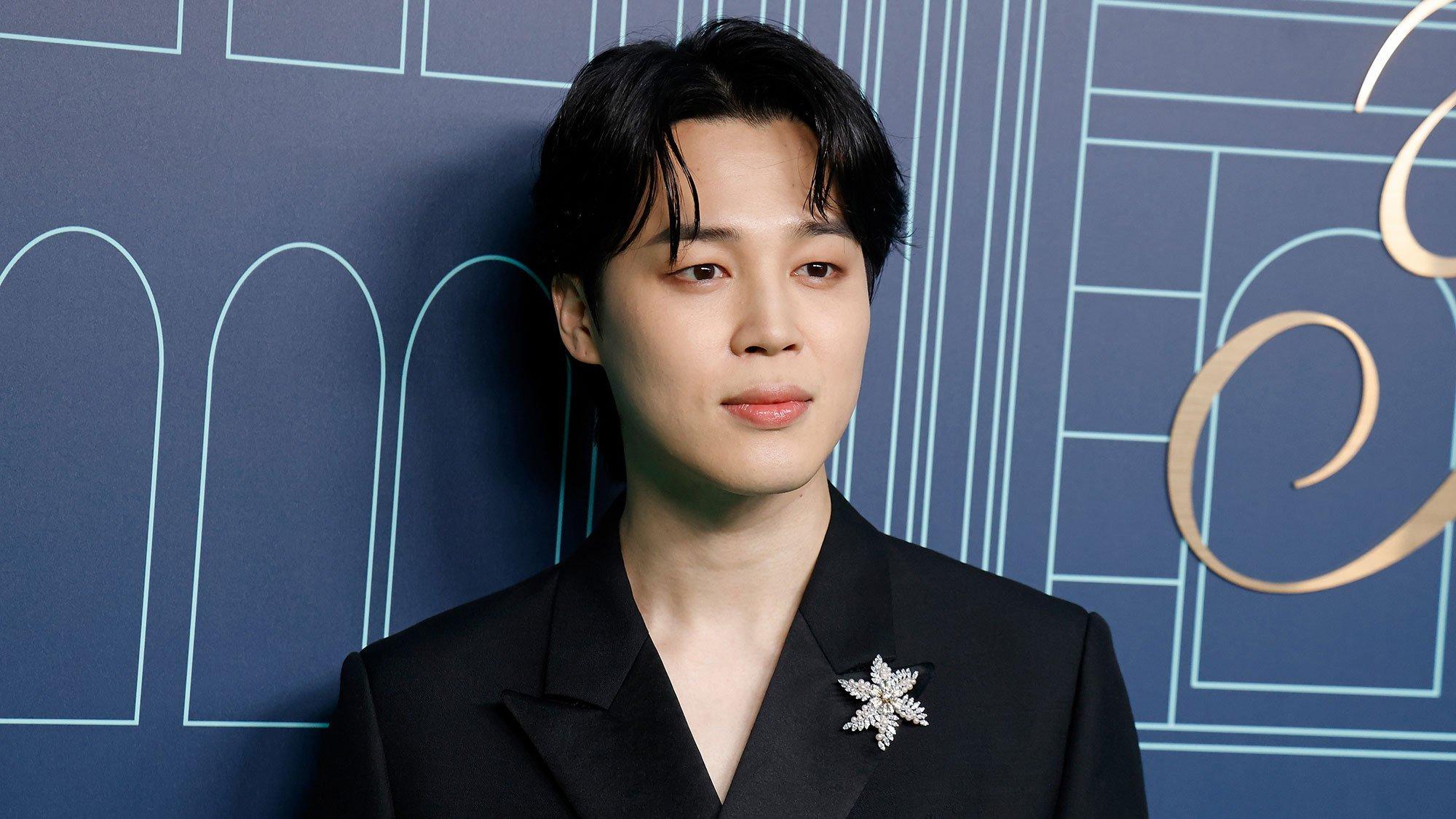
Photo: Taylor Hill/Getty Images
list
5 Takeaways from BTS Jimin's New Album, 'MUSE': A Bold Exploration Of Love And Inspiration
Jimin's second solo project, 'MUSE,' showcases his artistic growth and versatility, featuring a blend of nostalgic sounds, personal reflections, and standout collaborations.
K-pop juggernauts BTS are still on hiatus due to military enlistments, except for Jin, who was discharged last month. Yet, all members remain booked and busy in their solo endeavors.
Documentaries, travel shows, special singles — you name it, they carefully prepared it before starting their duties. And after new records from j-hope (HOPE on the Street) and RM (Right Place, Wrong Person) this year, the next in line is Jimin, who dropped MUSE today.
The album comes almost a year and a half after his debut EP, FACE, which placed Jimin as the first South Korean soloist to top Billboard's Hot 100 chart. In it, the Busan-born star proved his versatility and prowess standing on his own, captivating audiences old and new with his sensitive charisma.
In MUSE, Jimin introduces a new facet of his musical identity: bolder and more confident, but still a big softie at heart. To celebrate the beginning of a new era — and to ease the wait until his discharge next year — here are five key takeaways from Jimin's latest release, MUSE.
It's Another Jimin-Led Production
FACE was a proper introduction to Jimin's artistic vision, with him contributing to every aspect of the project and co-writing all of its tracks, minus the instrumental "Interlude: Dive."
Now, he takes it up a notch for MUSE, showcasing his growth by co-writing six out of seven tracks, and co-producing two of them: "Rebirth" and "Interlude: Showtime." Once again, Jimin had a hand on all of the album's components, including its concept and visuals, and bore down another layer of his ever-evolving skills.
If FACE introduced us to a vulnerable and sometimes desperate Jimin, MUSE charges forward with main pop boy energy, tender but commanding, sweet but sassy. It works both as a gift to fans and a tool to get to know Jimin even deeper.
He’s Still In Search Of His Muse
"We never met, but she's all I see at night/ Never met but she's always on my mind/ Wanna give her the world/ And so much more/ Who is my heart waiting for?" Jimin sings in MUSE's track, "Who." As the lyrics suggest, MUSE's main theme is Jimin's journey to find the source of his inspiration — his muse.
The album's seven tracks are all interconnected by love and longing, with Jimin searching for the one but getting lost in the way, and back at it once more. Through this perspective, he continues his path of self-discovery. After looking at his own FACE in the mirror, who else does he see? Who else instigates him enough to make art?
A Stellar Team Backs Up The Effort
To write and produce MUSE, Jimin enlisted longtime collaborators Pdogg, Ghstloop, Evan, and Supreme Boi. They have also been working with BTS for years, and know just what Jimin wants and needs in his songs.
But to make this album even more special, Jimin also collaborated with a fresh crop of professionals. Lead single "Who" was co-written and co-produced by Jon Bellion, Pete Nappi, and Tenroc, while Ayo the Producer and Kofo co-signed the fan-dedicated "Closer Than This." OneRepublic's Ryan Tedder helped pen "Be Mine," and Tommy Brown has writing credits on "Rebirth" and "Smeraldo Garden Marching Band (feat. Loco)."
Aside from Korean rapper Loco, MUSE also features American actress and singer Sofia Carson on the smooth duet "Slow Dance." Together, these names assembled a cohesive, yet diverse LP, brimming with influences from several decades, genres, and countries at once.
The Smeraldo Flower Makes A Comeback
Back in 2017, when BTS was in their LOVE YOURSELF era, they also introduced to their lore a fictional blue flower named Smeraldo. Symbolizing "a truth that cannot be told," its legend was better explored in the track "The Truth Untold (Feat. Steve Aoki)," and offered important clues to understanding that era's messages.
However, as years passed, the Smeraldo flower was largely forgotten from BTS's new works — until MUSE. Here, Jimin brings back the blue flower as one of the albums' visual concepts, and as the main motif behind pre-release "Smeraldo Garden Marching Band (feat. Loco)."
According to a press statement, the track's lyrics "express the longing to confess and find love on behalf of those unable to articulate their feelings," hence the use of Smeraldo. As for its curious title — loosely inspired by The Beatles' 1967 album Sgt. Pepper's Lonely Hearts Club Band — it came first as a casual nickname between Jimin, Pdogg, Ghstloop, and Evan while they worked together on FACE, and eventually became real.
It’s Packed With Nostalgia
If you miss Justin Timberlake's Justified sounds and other early-2000s gems, MUSE is here to take you on a nostalgic trip. Inspired by pop, R&B and hip hop from that era, Jimin gave his latest album a vintage, cozy veneer.
These references are predominantly visible on "Who" and its delightful guitar strums, but "Slow Dance (feat. Sofia Carson)," for example, sounds like an updated version of Usher and Alicia Key's "My Boo," and "Be Mine" could be the 2020's lovechild of Santana's "Maria Maria" and Sean Paul's "I'm Still In Love With You."
Another strain of references can be seen in "Smeraldo Garden Marching Band (feat. Loco)," which extends The Beatles' inspiration to experimental samples and marching band percussion, and creates a quirky piece that strays away from any current trends. "Interlude: Showtime" drinks from the same source, featuring a circus brass and drum line that introduces us to the singularity of "Smeraldo Garden."
While infused with nostalgia, MUSE still appeals to today's tastes, and offers a seamless, polished listen. It stands as a testament to Jimin's artistic growth, and while he might not have found his muse yet — he is certainly a source of inspiration for many.
More BTS News
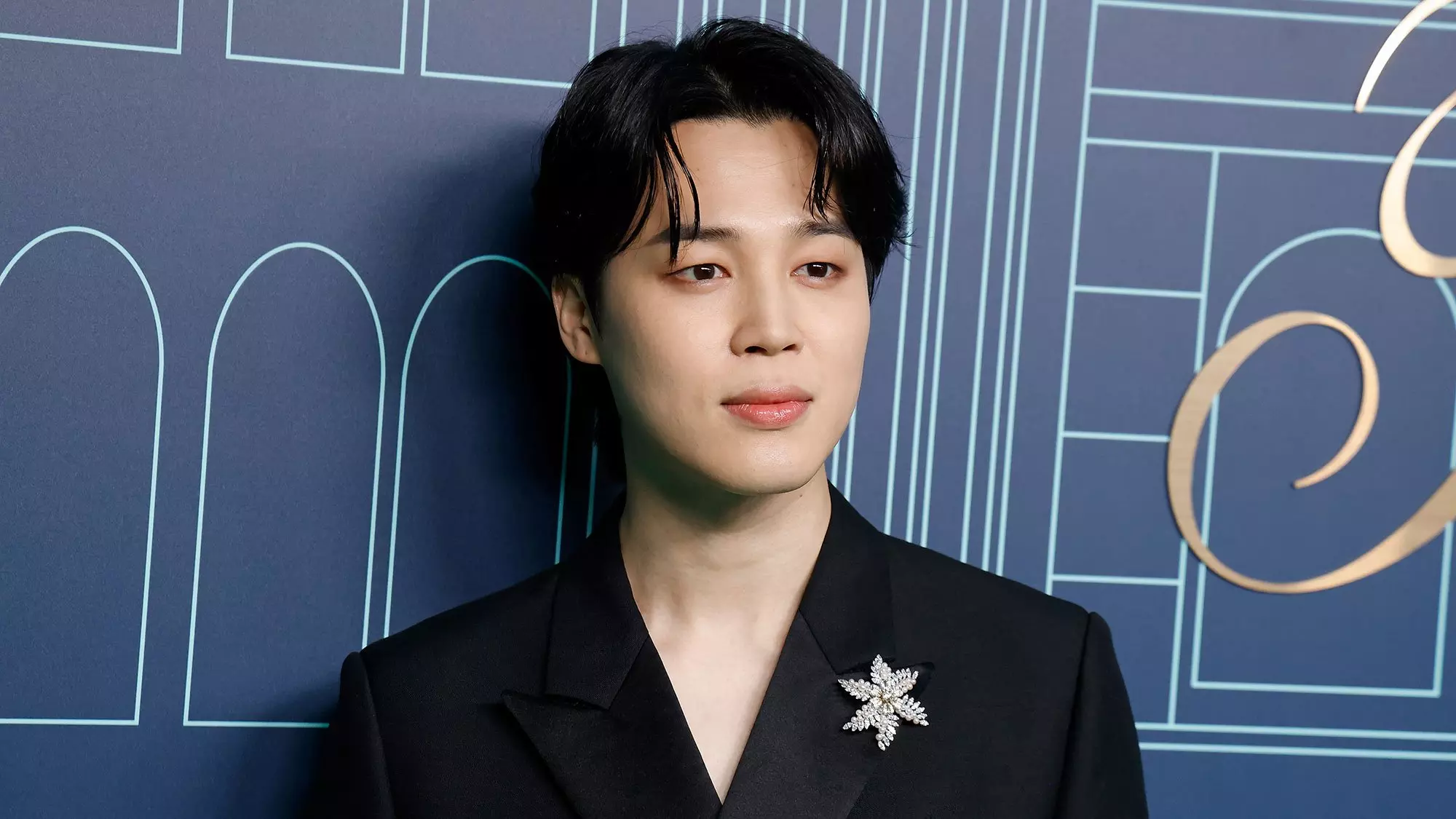
5 Takeaways from BTS Jimin's New Album, 'MUSE': A Bold Exploration Of Love And Inspiration

GRAMMY Museum Partners With HYBE For New K-Pop Exhibit 'HYBE: We Believe In Music' Opening Aug. 2
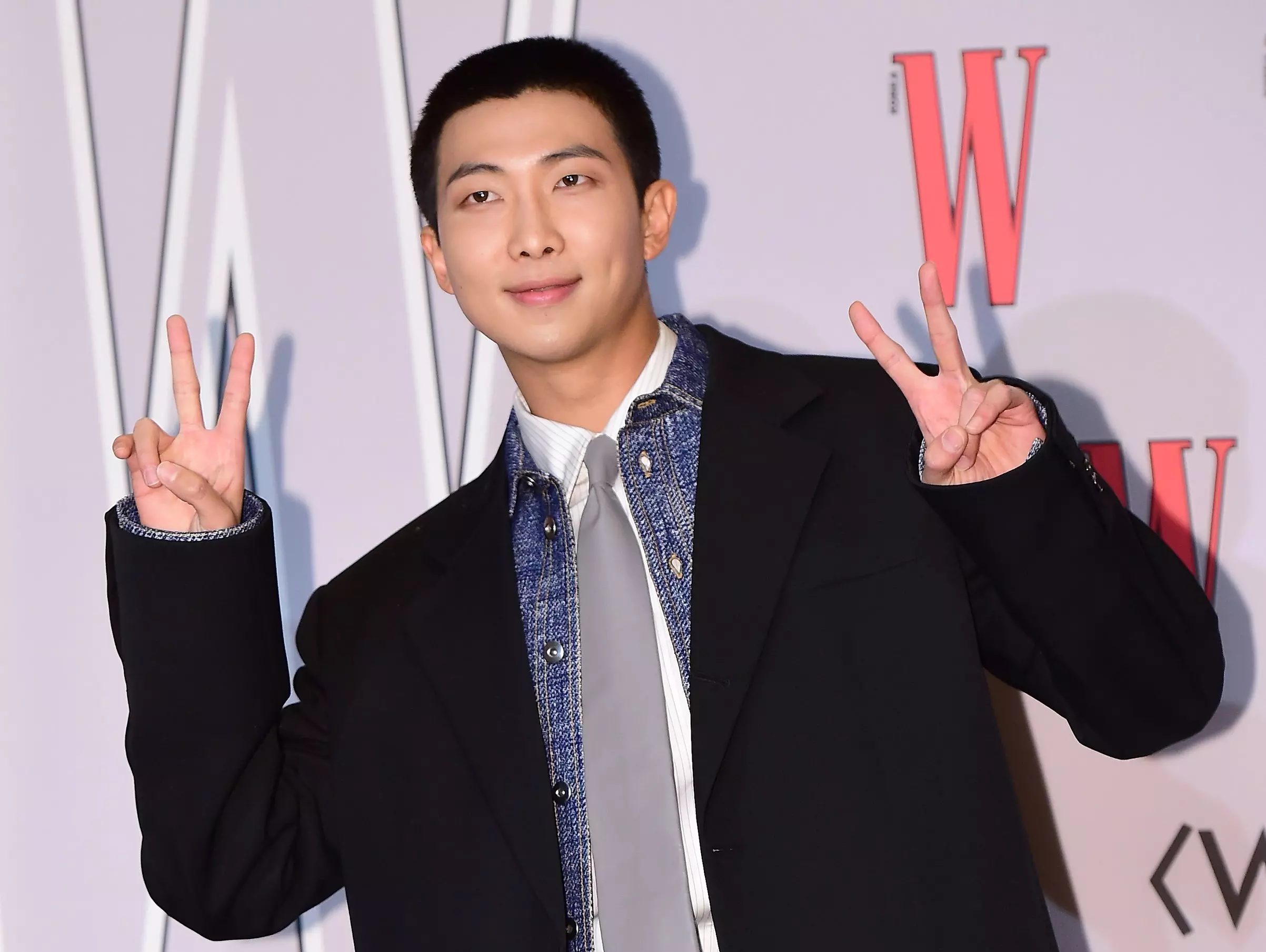
Stream RM's New Album 'Right Place, Wrong Person': See The Tracklist, "LOST!" Video & Special Guests
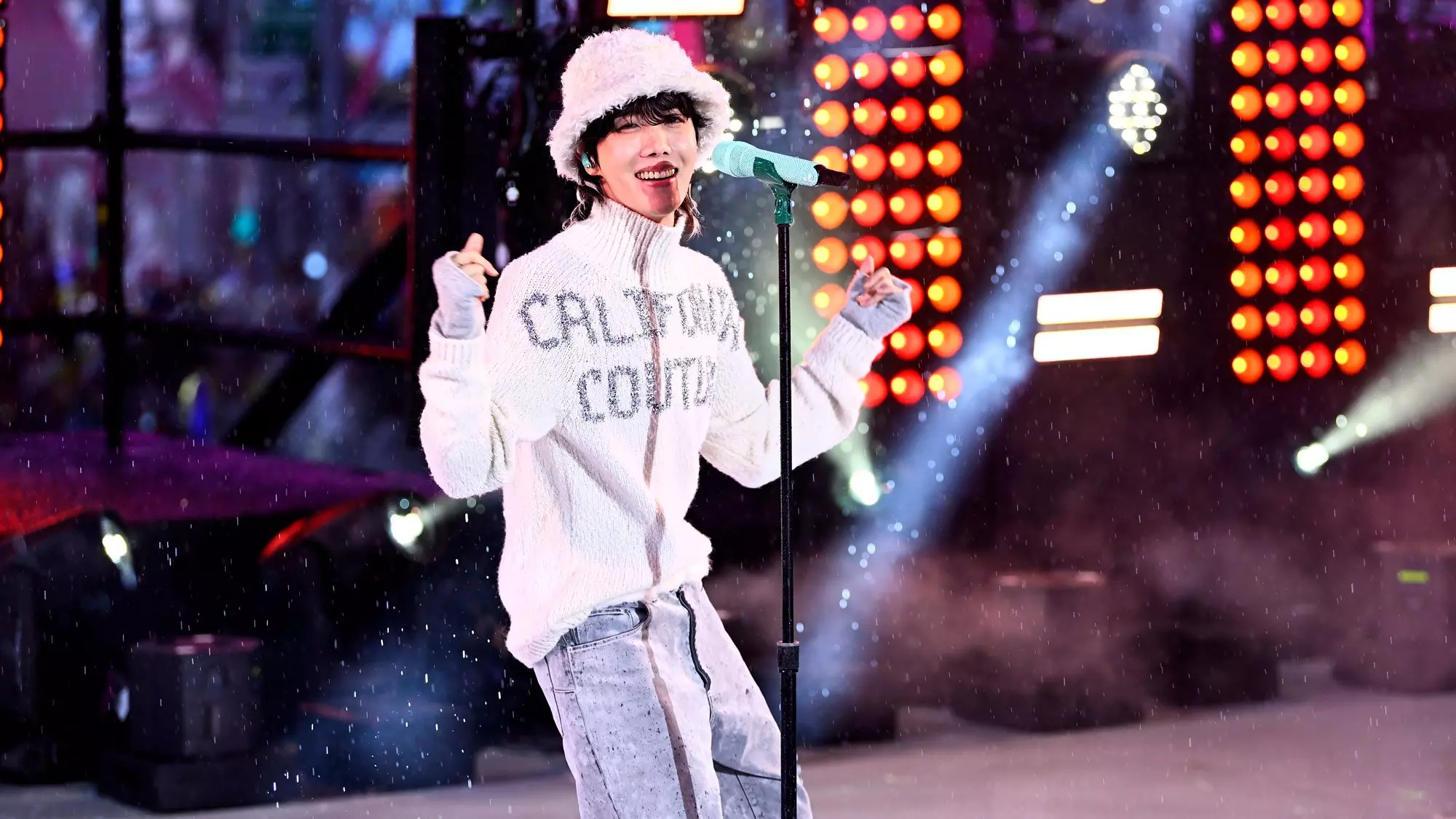
J-Hope's Road To 'Hope On The Street Vol.1,' From Falling Back In Love With Dance To Tying Together His Global Influences
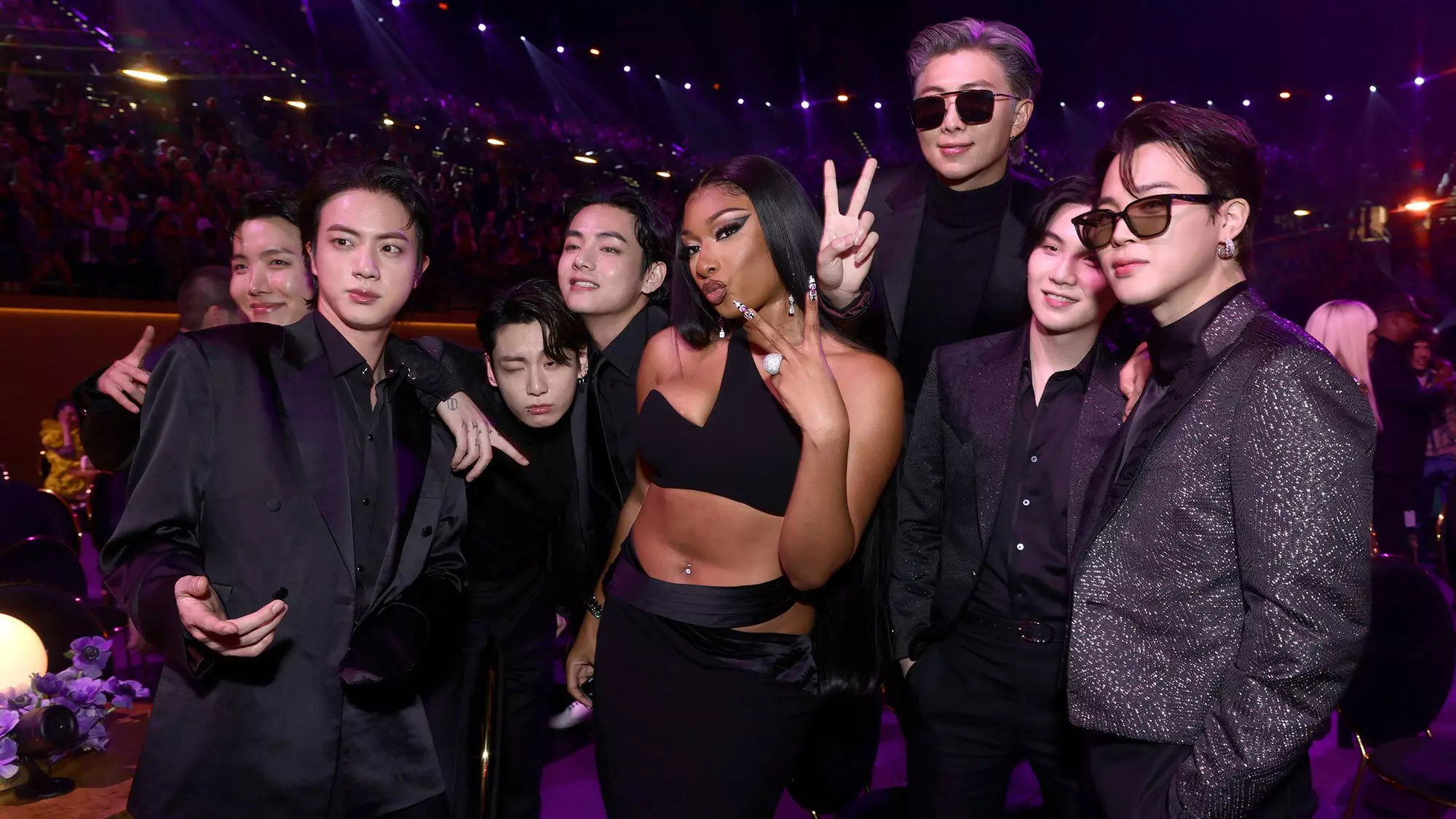
9 Essential K-Pop/Western Collabs: From BTS And Megan Thee Stallion, To IVE And Saweetie
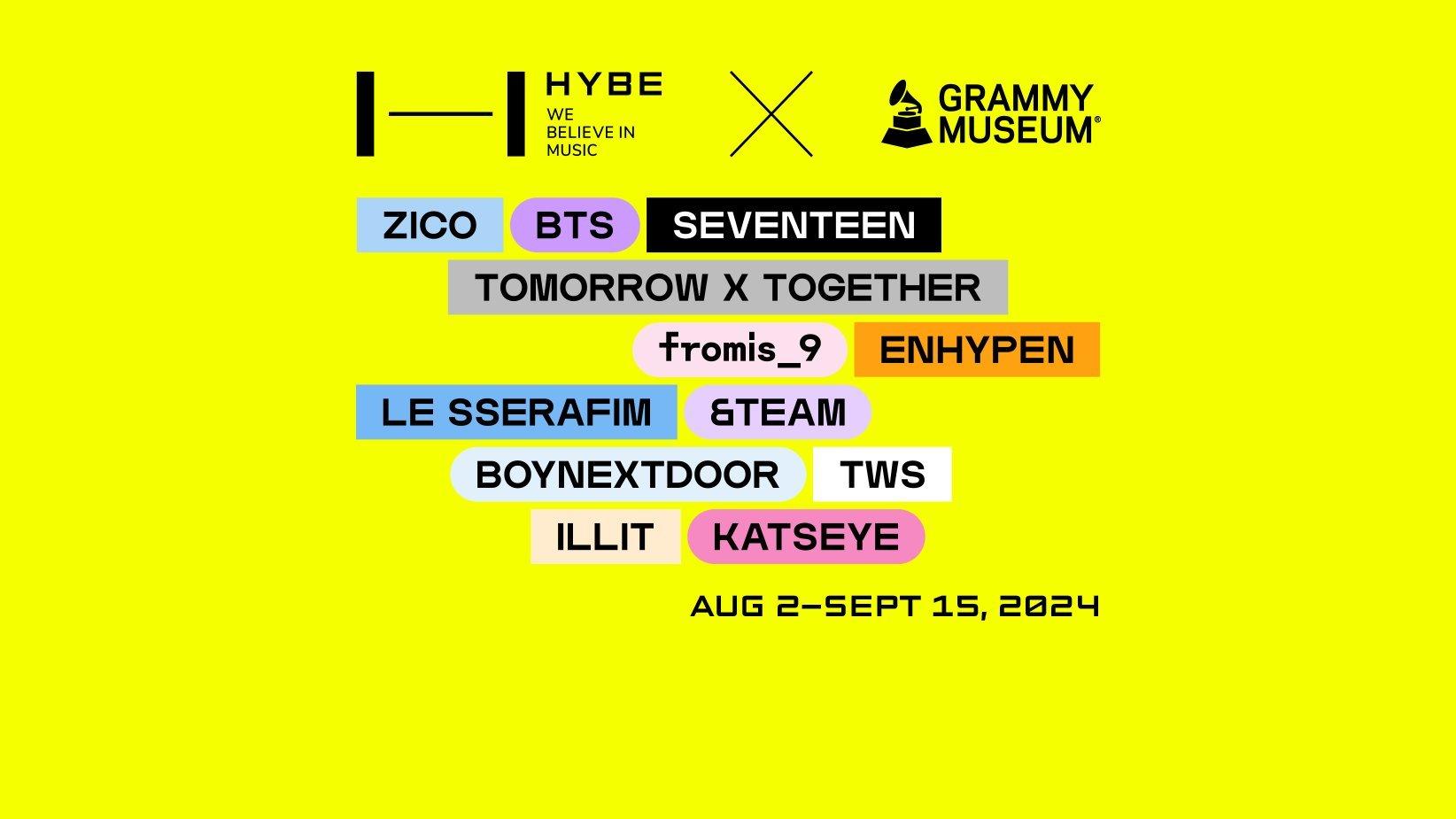
Graphic courtesy of the GRAMMY Museum
news
GRAMMY Museum Partners With HYBE For New K-Pop Exhibit 'HYBE: We Believe In Music' Opening Aug. 2
Running Aug. 2 through Sept. 15, the GRAMMY Museum exhibit showcases artifacts from superstar HYBE artists, including BTS, SEVENTEEN, TOMORROW X TOGETHER, ENHYPEN, LE SSERAFIM, and many more.
The GRAMMY Museum joins forces with HYBE to present its newest exhibit, HYBE: We Believe In Music, A GRAMMY Museum Exhibit. This interactive exhibit chronicles the history and impact of HYBE, and showcases its legacy of unparalleled innovation and creativity as a trend-setting global entertainment brand.
The exhibit opens on Aug. 2 in downtown Los Angeles and features spotlight moments with K-pop stars BTS, SEVENTEEN, TOMORROW X TOGETHER, ENHYPEN, LE SSERAFIM, and many more. "HYBE: We Believe In Music" runs through Sept.15. The exhibit will kick off on Aug. 1 with "Global Spin Live: TWS," a program featuring a moderated conversation with K-pop group TWS, followed by a performance.
The exhibit traces HYBE's evolution and influence by showcasing instantly recognizable artifacts from its roster of artists, creators, and fans. The displays notably feature original outfits worn in iconic music videos such as "Yet To Come (The Most Beautiful Moment)" by BTS, "MAESTRO" by SEVENTEEN, "Sugar Rush Ride" by TOMORROW X TOGETHER, "Sweet Venom" by ENHYPEN, and "EASY" by LE SSERAFIM. HYBE: We Believe In Music also boasts accessories and performance gear donned by ZICO, fromis_9, BOYNEXTDOOR, TWS, &TEAM, and ILLIT. The exhibit marks the first time these artifacts will be on display together in one location.
Other highlights include interactive sing-along and dance rooms, a dedicated Fan Section celebrating the endless support between HYBE artists and their fandoms, a Mono to Immersive room featuring BTS's 2022 GRAMMYs performance of "Butter," and a Photoism Booth that allows visitors to pose alongside their favorite K-pop artists. The GRAMMY Museum exhibit will also feature exclusive video content with producers, artists, music videos, and more.
"HYBE and their artists represent the present and future of the global music landscape, and our goal with this exhibit is to deepen the appreciation and respect for its creators and performers," says Michael Sticka, President/CEO of the GRAMMY Museum. "HYBE has contributed to creating a playground of innovation that inspires fandoms that transcend age, gender, geography and beyond. The GRAMMY Museum is thrilled to provide a space where fans can express their love for K-pop and feel closer to their favorite idols."
Read more: 11 Rookie K-Pop Acts To Know In 2024: NCT Wish, RIIZE, Kiss Of Life & More
HYBE Chief Operating Officer Taeho Kim added, "Putting out an exhibition that captures HYBE's journey is a new experience for us. We're very excited about this partnership with GRAMMY Museum, and we look forward to welcoming music fans who visit the museum to enjoy and connect with our historical pieces."
The exhibit highlights the roots of HYBE's meteoric rise. In 2005, South Korean producer, composer, and songwriter Bang Si-Hyuk, known as "hitman" Bang, changed the trajectory of Korean pop music by launching the record label Big Hit Entertainment. He soon signed a talented 16-year-old rapper named RM, which became the first step in creating the label's groundbreaking boy band — BTS. With the group's global success, "hitman" Bang and Big Hit Entertainment became known as musical trailblazers and record industry innovators. Big Hit Entertainment has now evolved into HYBE, which only continues to break boundaries in music and beyond.
More K-Pop News
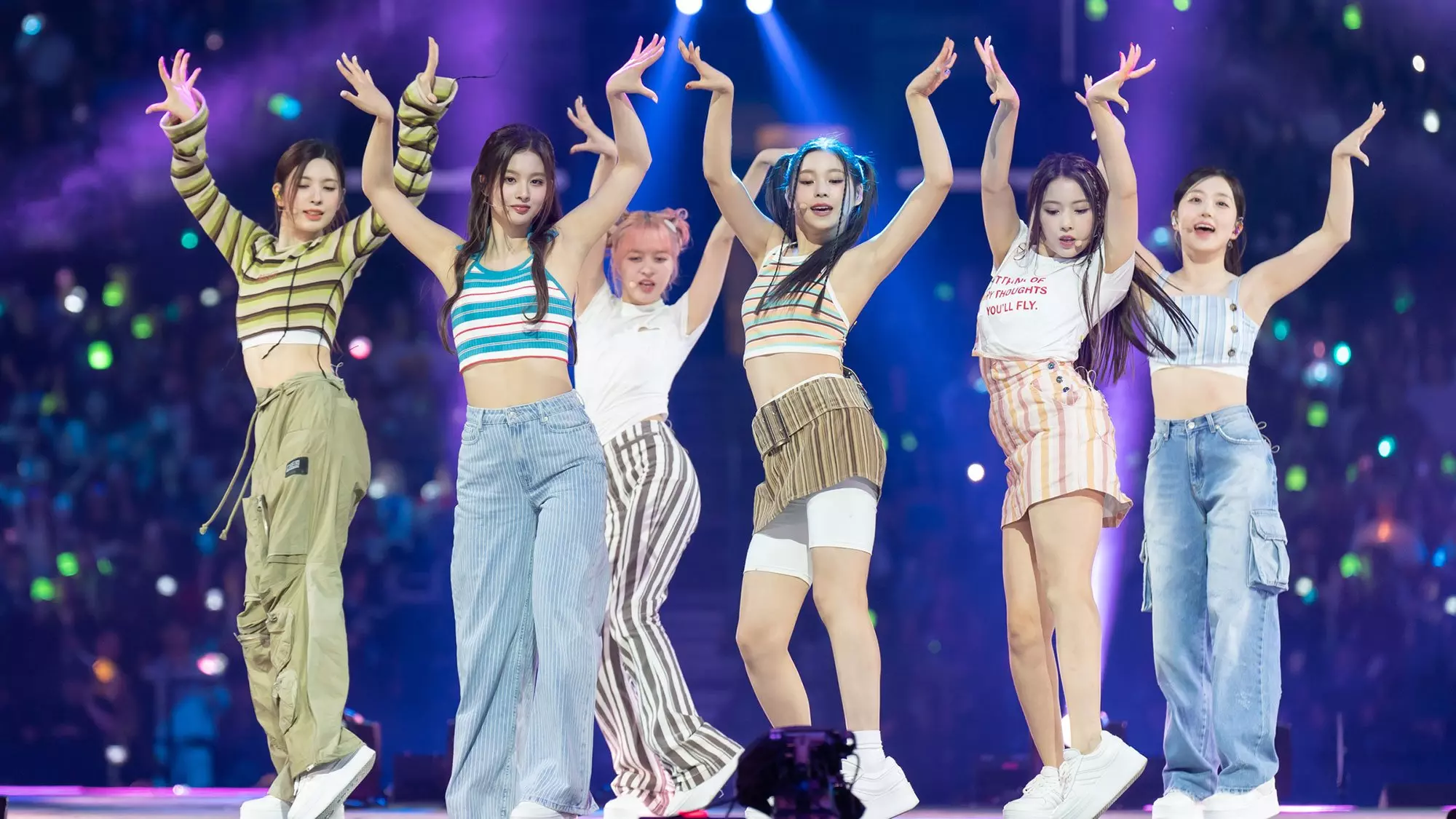
KCON L.A. 2024 Returns: Get Ready With This Playlist Featuring NCT 127, Zerobaseone, ENHYPEN, Zico & More
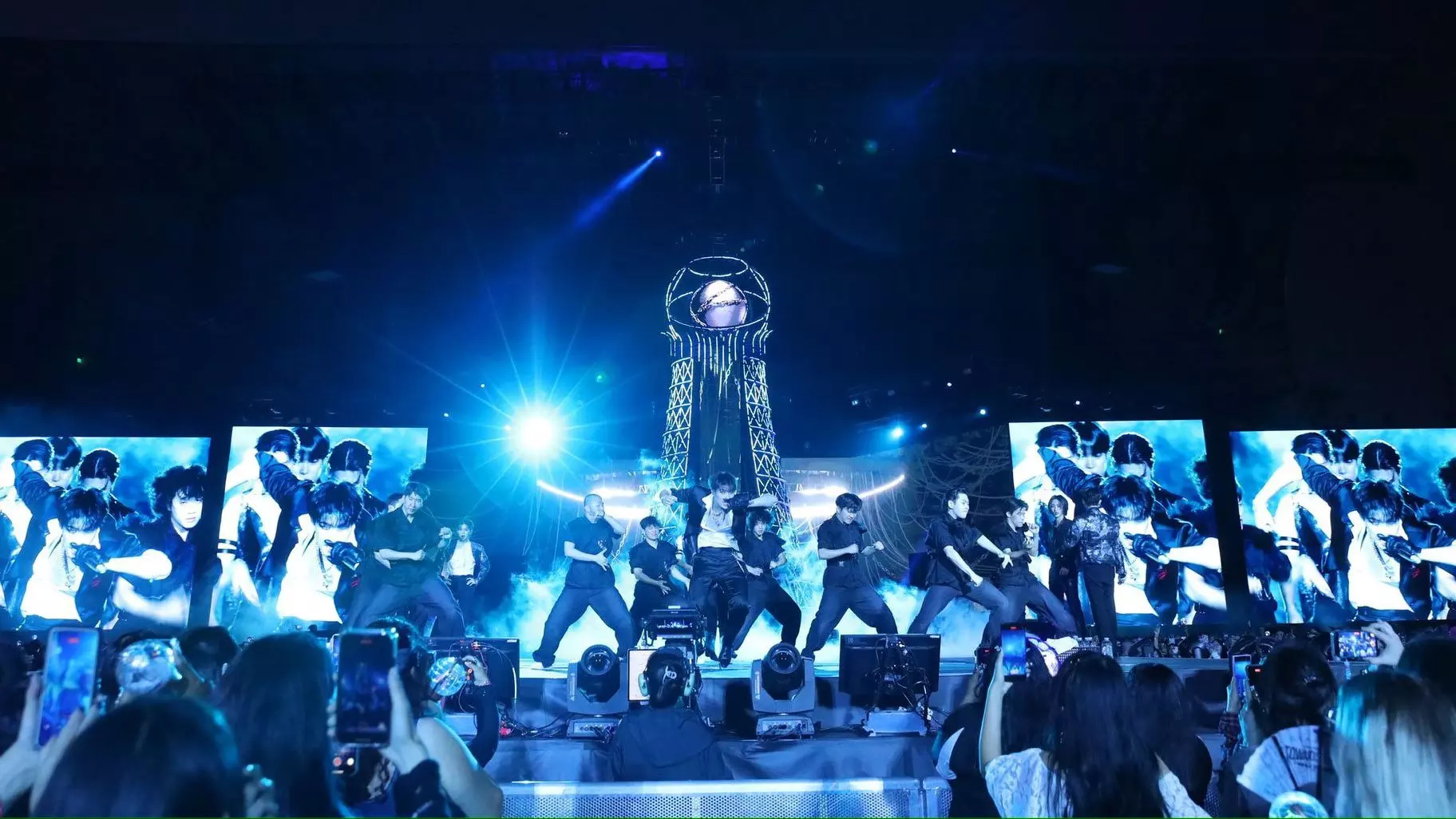
ATEEZ’s First U.S. Stadium Show Was A Triumph & Testament To Their Growth

5 Takeaways from BTS Jimin's New Album, 'MUSE': A Bold Exploration Of Love And Inspiration

NCT 127 Essential Songs: 14 Tracks You Need To Know From The K-Pop Juggernauts

ENHYPEN And JVKE "Say Yes" To Cross-Cultural Collabs & Exploring New Genres
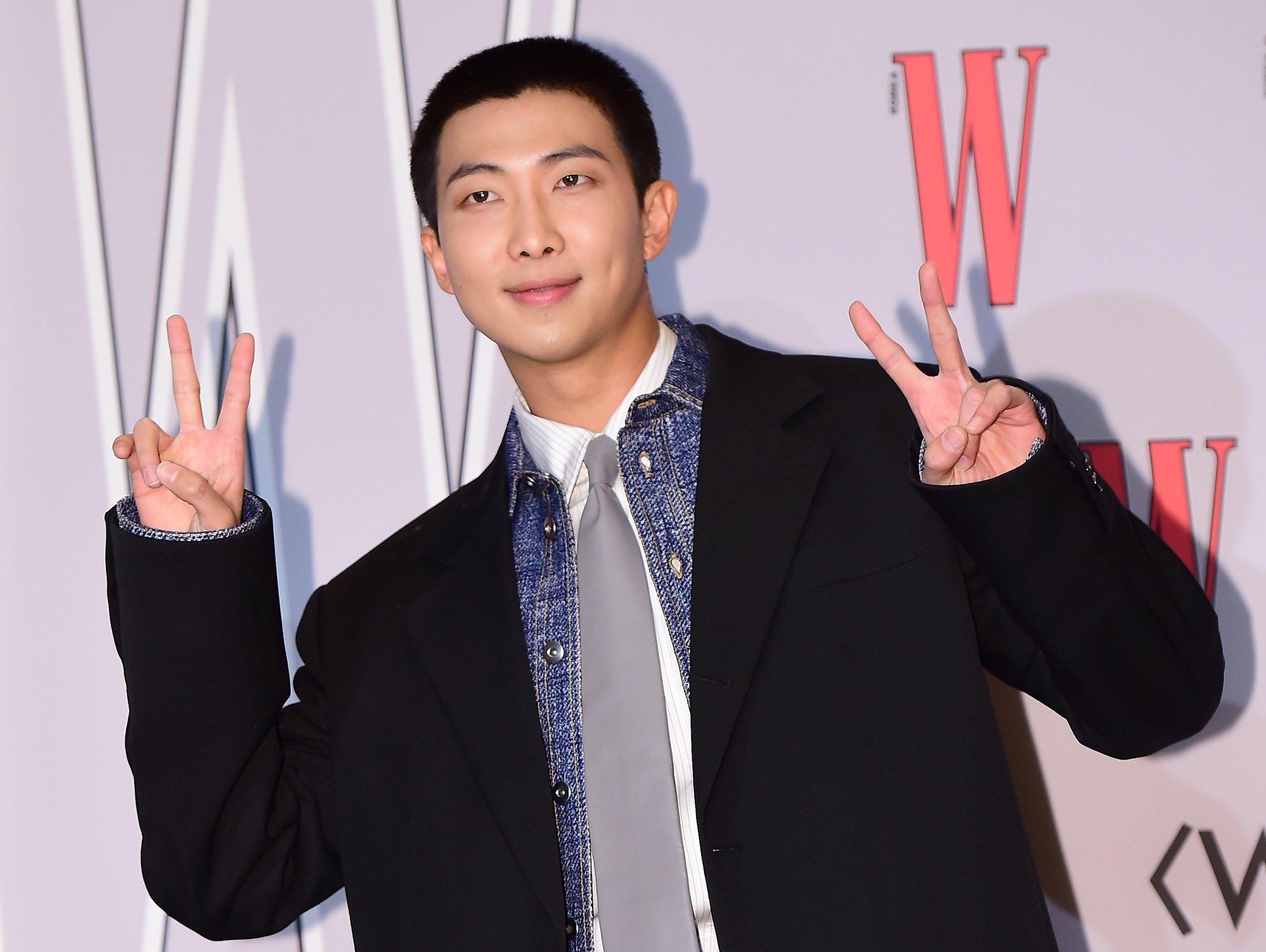
Photo: The Chosunilbo JNS/Imazins via Getty Images
news
Stream RM's New Album 'Right Place, Wrong Person': See The Tracklist, "LOST!" Video & Special Guests
The second solo album from BTS' RM further displays his knack for genre-bending experimentation, while also delving deeper into his vulnerable side. Listen to the new album here, and get to know the project's featured artists, tracklist and more.
As the world patiently awaits the return of BTS in full force, each member continues to deliver solo projects to show off their individual talents. And 18 months after his last album, RM is back.
With a discography that hops between pop, R&B, and hip-hop, RM returns to the spotlight with his second solo album, Right Place, Wrong Person. The project tells the relatable story of an individual who is a creature of habit, but slowly comes to find solace in foreign spaces.
Below, listen to RM's latest album, and discover more about how he's revealing a new side of his artistry with Right Place, Wrong Person.
The Tracklist
After RM's debut solo album, 2022's Indigo, had 10 tracks (including features from the likes of Erykah Badu, Anderson .Paak), he ups the tally with an 11-song tracklist this time around.
Here is the complete tracklist for Right Place, Wrong Person:
1. Right People, Wrong Place
2. Nuts
3. out of love
4. Domodachi (feat. Little Simz)
5. ? (Interlude)
6. Groin
7. Heaven
8. LOST!
9. Around the world in a day (feat. Moses Sumney)
10. ㅠㅠ (Credit Roll)
11. Come back to me
The Creative Visuals
Two weeks before the album dropped, he unveiled the music video for "Come Back to Me," the lead single from Right Place, Wrong Person. Directed by the critically acclaimed actor Lee Sung Jin, the music video narrates the tale of feeling like an outsider and yearning for a sense of belonging in unfamiliar surroundings.
Then, on the day Right Place, Wrong Person arrived, RM added to release-day excitement with another intriguing visual, this time for "LOST!" The five-minute clip sees RM as the star of "The Lost! Show," where he and a group endure an eerie whirlwind of scenarios they can't seem to get out of. It's equal parts dramatic and slapstick, and another clever display of RM's creative versatility.
Noteworthy Guests
The featured artists on Right Place, Wrong Person — British rapper Little Simz on "Domodachi" and art-pop artist Moses Sumney on "Around the world in a day" — underscore RM's ability to interlace his own musical style with artists from various genres.
The album also has some notable behind-the-scenes collaborators as well. Production credits include Kim Han-joo, keyboardist and vocalist from the South Korean rock band Silica Gel, on "LOST!" and GRAMMY-nominated jazz duo DOMi & JD Beck on "? (Interlude)."
On "Come back to me" — which RM initially debuted last August during a surprise performance at BTS bandmate Suga's encore concert in Seoul — he delves into the album's central theme of wanting to venture into unknown areas, but feeling the intense urge to stay with what's already known. The track was composed and arranged by OHHYUK from the South Korean indie-rock band Hyukoh, but also features credits from artists Kuo, JNKYRD, and San Yawn.
But no matter who RM is working with, his own talent and prowess as a creator always shines. Right Place, Wrong Person presents a diverse array of tracks marked by sheer vulnerability, honesty, and sensitivity — a masterful continuation of a remarkable solo journey.
K-Pop Summer 2024 Guide: ATEEZ, IU, TXT & More Live In Concert & On Tour
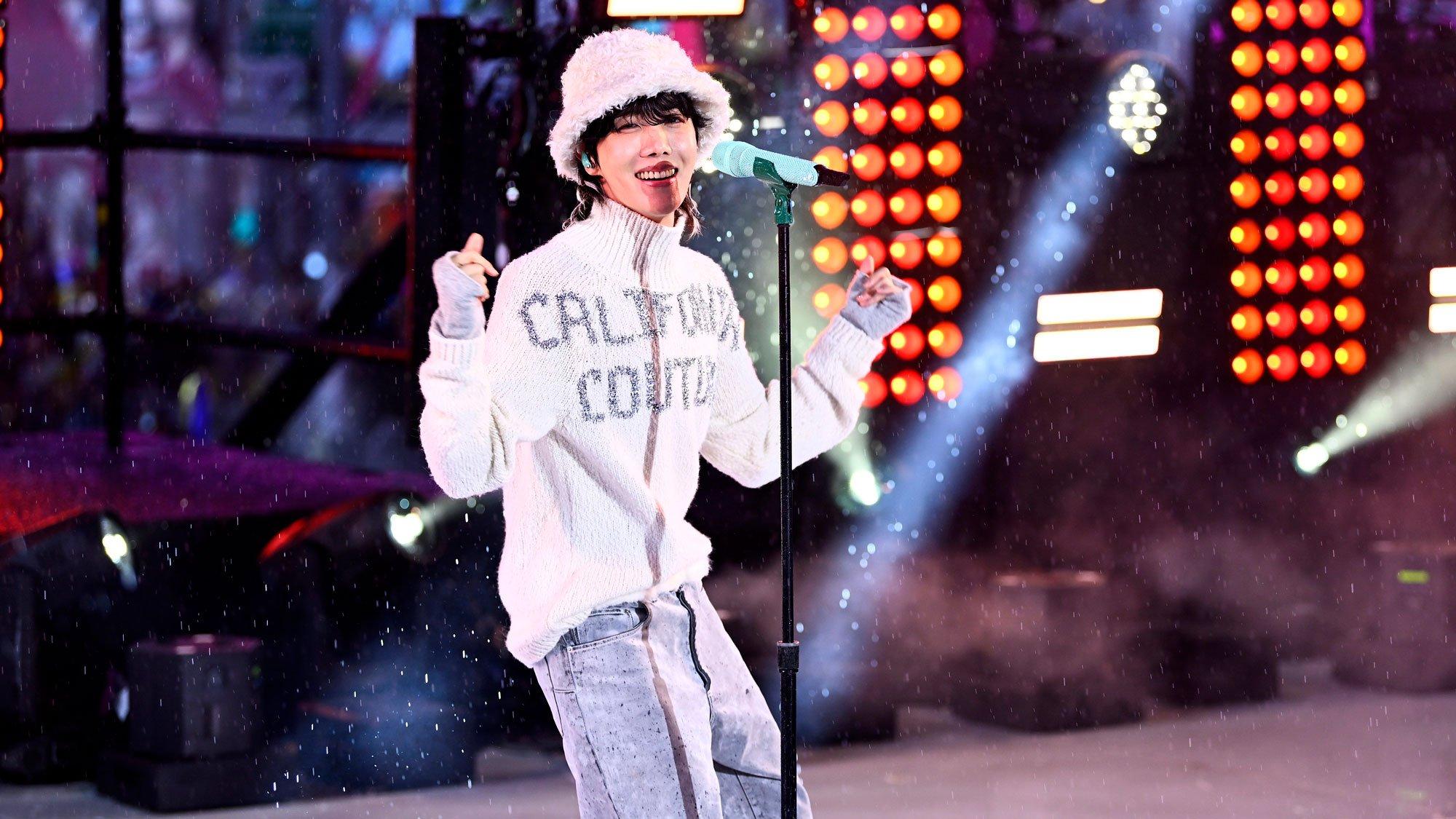
Photo: Roy Rochlin/Getty Images
feature
J-Hope's Road To 'Hope On The Street Vol.1,' From Falling Back In Love With Dance To Tying Together His Global Influences
After 11 years in BTS, j-hope revisits the passion that started it all: dancing. Ahead of his new docuseries and special album, 'Hope on the Street Vol.1,' discover the full-circle journey that brought him back to his roots.
"Just dance," j-hope commands on his 2018 BTS solo track.
For the international sensation, that's what it's always been about: expressing himself through movement. Now, 11 years after the launch of the seven-piece group, j-hope takes a U-turn to where it all began, before his K-pop idol days, street dancing between his hometown, Gwangju, and Seoul, South Korea.
Out March 29, j-hope's new special album, Hope on the Street Vol.1, is a musical ode to dancing that boasts a "vibrant collection of six tracks spanning a diverse array of sounds and moods that showcase j-hope's musical prowess and depth." Like j-hope's global perspective of dance, the EP expands borders and sounds, featuring appearances from HYBE labelmate HUH YUNJIN of LE SSERAFIM as well as American stars Nile Rodgers and Benny Blanco.
The mini-album will also be accompanied by a docuseries of the same name, premiering on Amazon Prime Video on March 28. According to a press statement, the six-part project will "highlight j-hope's story and love for dancing as he begins a new journey."
Ahead of Hope on the Street Vol.1's arrival, take a look at how j-hope's origins inspired the project — from his enrollment in a local dance academy to songwriting with J. Cole on their 2023 single, "on the street."
Finding Purpose In Dance
Long before becoming a global superstar, j-hope (born Jung Ho-seok) first discovered his love for dancing on the playground.
"The school I went to had a dance lesson for 30 minutes in the morning. They would play a dance video, and we would copy it as exercise," j-hope recalled in a 2013 interview for the BTS Japan Fanclub magazine. "My friends around me would praise me, saying, 'You're really good!'"
Eventually, those recess workouts turned into a passion. J-hope began practicing moves at home and freestyling at local talent shows. By the sixth grade, he told his parents he was serious about it, enrolling him in Gwangju's Joy Dance Academy.
While at the Academy, j-hope also joined the underground dance crew, NEURON, building a reputation under the name "Smile Hoya." Though he hasn't participated in the troupe since his pre-BTS days, he still recognizes it as one of the most influential parts of his career.
He'll even honor the crew with Hope on the Street, which includes a track called "NEURON," featuring Gaeko and yoonmirae. He will also return to Gwangju in the closing chapter of the docuseries.
It's not the first time j-hope shouted out Gwangju, either. His 2019 collab with Becky G, "Chicken Noodle Soup," paid tribute to his beloved upbringing: "From Gwangju, one gang of you-know-what/ Geumnam Chungjang Street, that's my Harlem." (The same track also foreshadowed his latest release: "Hope on the street, now it's my own way.")
Forging A New Life In Music With BTS
J-hope continued to have a diligent mindset as a trainee at Big Hit Entertainment. But as revealed in BTS' 2018 docuseries, Burn the Stage, training and dieting became emotionally and physically tolling. At one point, j-hope even considered leaving the group.
"I couldn't do things I wanted to do," he revealed during a 2021 You Quiz on the Block segment. "To be honest, I wanted to play games. I want to go out and hang out. I wanted to stay with my family. I had to give up a lot of things from that perspective."
The stress became so intense that he bought a one-way ticket to Gwangju. But ultimately, the brotherhood and love of music he formed with BTS gave him the courage to return: "I came back because I trusted you," j-hope recounted.
And they trusted him, too: "I told [Big Hit] that we needed Jung Ho-seok. We couldn't debut without him," RM responded. Meanwhile, Jung Kook delivered a tearful speech to encourage him to stay with the band.
The longer he stayed, the more j-hope began to love other sides of music, like producing and songwriting. Now, he has become one of the main writers for the group's tracks, alongside RM and Suga, and has co-penned all of his solo projects, including Hope on the Street.
Spreading His Wings With Two Full-Length Solo Projects
After nearly 10 projects with BTS, j-hope delivered his debut mixtape, Hope World, in March 2018.
"My fantasy had always been making a music video and performing with the music I had created. I wanted to put my own story to music and share it with the world," he told Time magazine upon Hope World’s release.
It's an introduction to j-hope the artist, inviting listeners to step into Hope World, a colorful kaleidoscope of different cultures and styles — something that has also been a key part of his dance journey.
Though, j-hope still wanted to dig deeper into his artistry. He developed his sound, becoming more vulnerable in his lyricism on tracks like 2020's "Outro: Ego." By 2022, he was ready to drop his first studio album, Jack in the Box.
Where Hope World showcases j-hope's dance performance, Jack in the Box highlights "my artistry in music." But Hope on the Street paints the full image of the phenom — part musician, part dancer.
Laying The Groundwork With "On The Street," Featuring J. Cole
One of j-hope's earliest musical influences was J. Cole. The rapper inspired j-hope's stage name and the title of his mixtape, which pays homage to 2011's Cole World. In 2022, j-hope honored Cole with "Born Singer," the BTS re-write of Cole's "Born Sinner." So, a celebratory meeting was in order when they were both scheduled to perform at Lollapalooza (where j-hope made history as the first Korean soloist to headline).
"[He's] my idol," j-hope said to Variety in 2023. Since they met, he "couldn't stop thinking about how great it would be if we could make music together." He reached out to J. Cole, and "on the street" was born.
As j-hope told Variety, the "street" concept became a metaphor for life: "The street is a place where people can actually encounter and feel real lives of people: a child's innocent mind; first encounter with someone and falling in love; someone in an urgent moment;" and so much more. It's the place where he learned to love dance — and where he grew a love for music and artists like J. Cole, who called their collab "a blessing" in the behind-the-scenes footage.
And thus, "on the street" became the springboard for his forthcoming project, Hope on the Street.
Unveiling A Docuseries And A Multi-Part Project
By the tail end of 2023, each member of BTS had enlisted in mandatory military service. But even during the septet's hiatus, j-hope managed to serve up a surprise announcement of Hope on the Street on Feb. 17 with a fitting montage of dance videos.
The joint docuseries and album follows j-hope's journey of self-discovery, accompanying his former instructor, Boogaloo Kin, as they dance their way through the streets of Osaka, Seoul, Paris, New York, and his hometown while meeting other dancers.
"Hope on the Street, my roots, the most important part of my life. This is how j-hope danced. I wanted to share this story with you," he said in an interview for the documentary.
After years of breaking records and making history as a member of BTS, it was "a chance to look back on my life," he explained in another trailer. "I realized the answer was in song and dance."
Culminating j-hope's skills in both art forms, Hope on the Street is a love letter to everything that's made him who he is today — and proof he'll never forget it.
